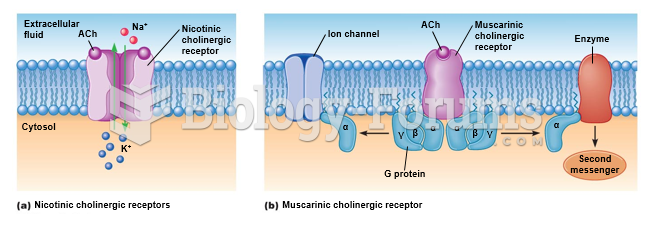This topic contains a solution. Click here to go to the answer
|
|
|
Did you know?
Drugs are in development that may cure asthma and hay fever once and for all. They target leukotrienes, which are known to cause tightening of the air passages in the lungs and increase mucus productions in nasal passages.
Did you know?
Blood is approximately twice as thick as water because of the cells and other components found in it.
Did you know?
The horizontal fraction bar was introduced by the Arabs.
Did you know?
Blood in the urine can be a sign of a kidney stone, glomerulonephritis, or other kidney problems.
Did you know?
Excessive alcohol use costs the country approximately $235 billion every year.







